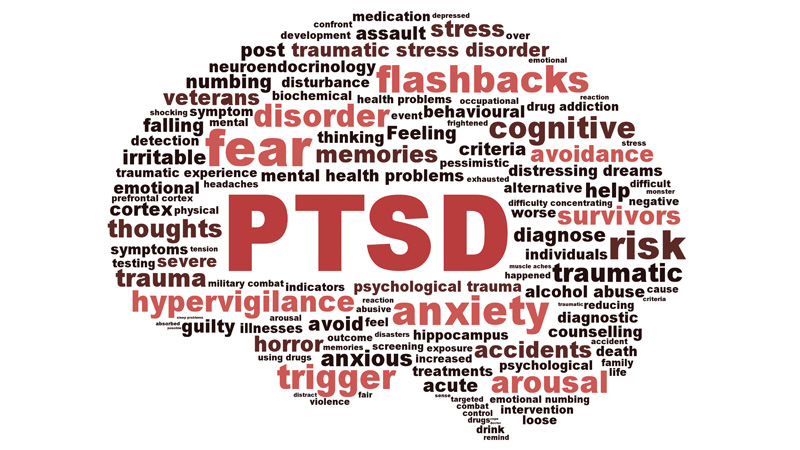Home > Mental Health > Depression > PTSD
POST-TRAUMATIC STRESS DISORDER: SIGNS AND TREATMENT
Post-traumatic stress disorder (PTSD) arises when a young person experiences a single traumatic event, several traumatic events, or ongoing trauma.

General Information
Typically, this can include a teen being physically, emotionally or sexually abused. There are many young people who are exposed to something that may be traumatic, but that does not mean that it is an inevitability that every teen will go on to develop PTSD. For young people who do develop PTSD, however, it is essential to know that with proper treatment a teen can overcome his or her PTSD.
Symptoms
Though each adolescent is different, there are many common symptoms that are associated with Post-traumatic stress disorder. Some of the following are examples of typical symptoms that may appear in a young person with PTSD:
- Agitation
- Reckless behaviors
- Regressions
- Irritability
- Irregular sleep
- Physical aches and pains
- Difficulty with physical contact
- Depression
- Anxiety
- Isolation
- Difficulty concentrating
- Low self-esteem
- Constant feelings of fear and worry
- Hyper vigilance
- Experiencing crying spells
- Tense muscles
- Suicidal ideations
- Exhaustion
- Risky behavior
- Social anxiety
Any combination of the above symptoms may be exhibited in teens that have PTSD. Each teenager with PTSD has the propensity to experience varying levels of severity of any of the above symptoms.

Treatment
For many years, it was thought that PTSD was incurable, but research shows that this is no longer the case. With proper treatment, a young person experiencing PTSD can overcome it to lead happy and fulfilling lives. At Pacific Teen Treatment, we work with the teen to create a tailored treatment plan to help heal all aspects of the teenager. We place great emphasis on using a variety of treatment modalities.
The main types of psychotherapy that are commonly used to treat PTSD include cognitive behavioral therapy (CBT), dialectical behavior therapy (DBT), expressive arts therapy, and talk therapy. Cognitive behavioral therapy is a therapeutic method that combines behavioral therapy with talk therapy. This can be extremely helpful for the treatment of PTSD, as teens will work closely with a therapist to essentially change one’s thinking patterns. CBT will help a teen to develop coping skills that will enable them to change their own thoughts surrounding the trauma, helping to reframe the experience or experiences in one’s own mind, thus alleviating much of the negative thoughts, feelings, emotions that play into one’s PTSD. DBT is also frequently used to treat teens with PTSD. Dialectical behavior therapy uses mindfulness skills to help a teen focus on accepting their emotions, while also helping to adjust the unhealthy behaviors that arise from the emotions.
Additionally, we combine therapeutic methods with proper diet and exercise to address the whole person. At Pacific Teen Treatment, we believe that encouraging and practicing regular daily fitness combined with a healthy diet will help our residents create and learn to take an active role in living a healthy lifestyle. We also encourage our young people to practice various forms of relaxation such as yoga and meditation. Post-traumatic stress disorder can impact, not only the teen suffering from it, but can affect all people that surround and support the teen. Teaching our residents healthy skills and tools to integrate into their everyday lives will help with their treatment process, while also setting them up for success post-treatment.
Further Information
Every family in need of mental health treatment must select a program that will best suit the needs of their family. When one member of a family struggles, it impacts everyone in the family unit. In order to maximize the benefits of treatment we work closely with the entire family to ensure that everyone is receiving the support they need through these difficult times.
Seeking help is never easy, but you are not alone! If you or someone you know is in need of mental health treatment, we strongly encourage you to reach out for help as quickly as possible. It is not uncommon for many mental health difficulties to impact a person’s life, long term. Seeking support at the beginning of one’s journey can put the individual in the best position to learn how to manage themselves in a healthy way so they can go on to live happy and fulfilling lives.
Our admissions team can be reached 24/7 at info@pacificrtc.com or call: Phone Number,(800) 531-5769
We are available to answer any questions you may have regarding mental health treatment and our residential program, anytime. Contact us today using the form to the right.

